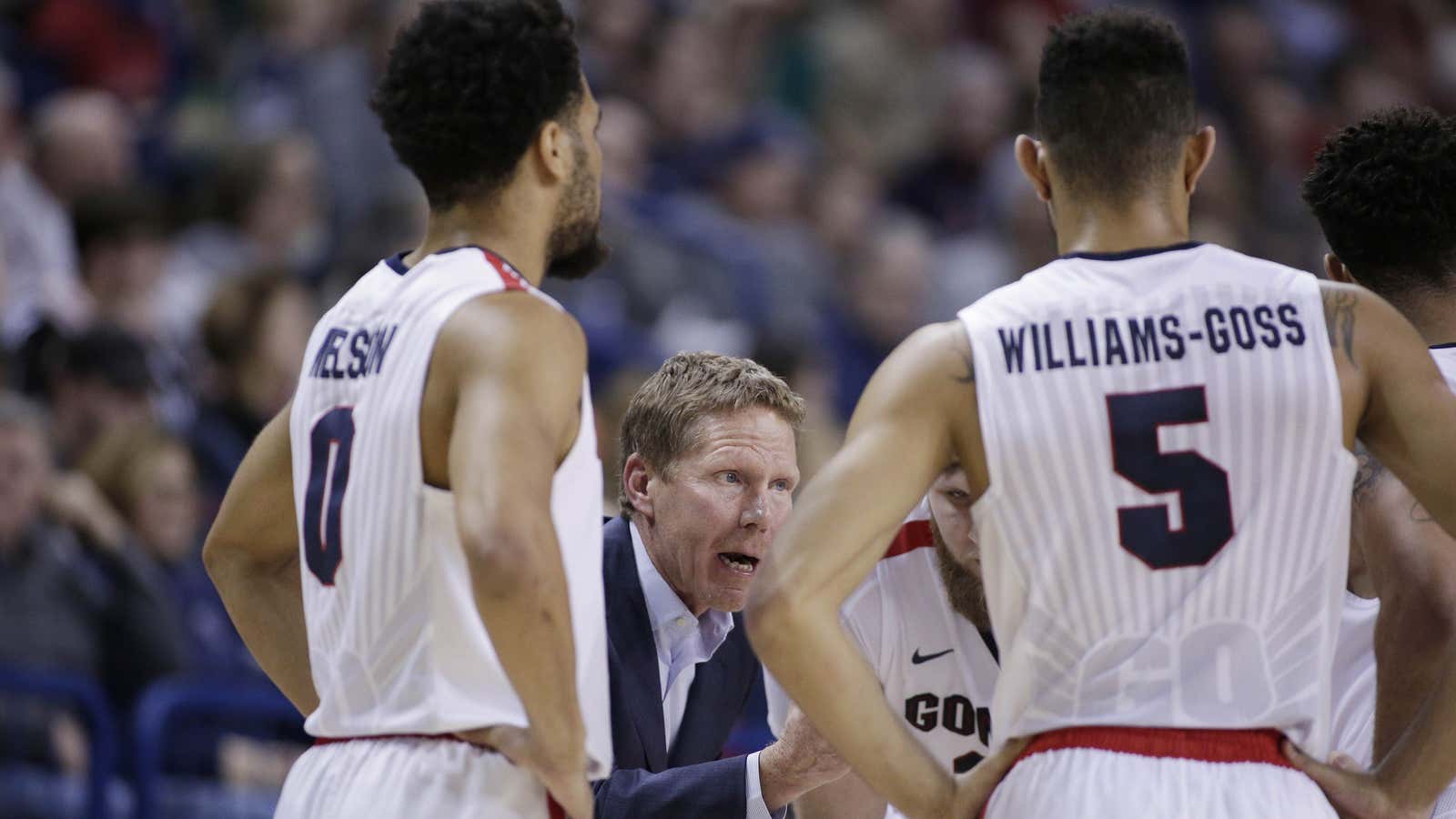When Gonzaga University takes the court tomorrow for its Final Four game in the US college basketball extravaganza called “March Madness,” it will be the result of almost two decades of program-building toil by Mark Few, its head coach.
Few is justifiably celebrated as one of the game’s great coaches for taking a small and obscure Catholic college from sleepy Spokane, Washington (population: 211,000) and turning it into a college basketball powerhouse. Gonzaga has now appeared in 19 straight NCAA tournaments, among the longest such streaks in the sport, and sent more than a dozen players to the professional ranks of the NBA.
Less well known is that it was Few’s predecessor, Dan Monson, that started Gonzaga’s run of greatness.
As in most sports and businesses, there’s an established hierarchy in college basketball, with big programs like the universities of North Carolina and Kansas at the top of the ladder and schools like Gonzaga at the bottom. Coaches who find success at smaller programs invariably are lured away by the big dogs, and most take the leap, assuming that success is easier to sustain at a larger, resource-rich program.
No one was surprised when Monson, after leading Gonzaga to the round of eight of the NCAA tournament in 1999, left for a job at the University of Minnesota. What’s much more surprising is that Few, who was Monson’s assistant coach, didn’t eventually follow him out the door. Despite multiple opportunities to leave Gonzaga and Spokane for far more glamorous cities and programs like UCLA and Stanford, Few has stayed put.
Few was raised in rural Oregon, the son of a minister. He’s a small man in a sport of giants, and quiet speaker in a profession of loud mouths. Living in a big city holds no appeal for him. In Spokane, he can pursue his hobby of fly-fishing and before games, he jogs on mountain biking trails. He lives with his wife and four children on a 30-acre property with expansive views of the city and mountains.
“For me, this is what it’s all about,” he told Bleacher Report in 2015. “All those people who wonder why I never leave… if they could see this, they’d understand.”
Few also stayed because Gonzaga’s administration committed to supporting his efforts. The university opened a modern, $25 million arena in 2004, and Few’s annual salary of $1.6 million is comparable to his peers at more established programs. While Gonzaga once counted on finding players who were diamonds in the rough, 20 years of winning means Gonzaga now recruits blue-chip prospects.
In the murky, ethically nebulous world of college sports, Few has avoided recruiting scandals, and Gonzaga’s players seem to stay in class and out of trouble. “We’ve never sacrificed our values to build a national program and we’ve done it the right way and there are a lot of people that don’t,” Few told Spokane’s Spokesman-Review. “We’ve done it with good guys and we’ve stayed nationally relevant the whole time.”
It sounds easy, but Few’s accomplishment is vanishingly rare. There’s been handful of other small programs to crack the sports rigid feudal system and reach the Final Four, but most quickly return to obscurity. Leaving is no guarantee of success, either. Dan Monson never reached the same heights at Minnesota as he did at Gonzaga, and he left in 2006. He’s now the head coach at Long Beach State—which didn’t make the cut for March Madness this year.
In a profession that prizes the single-minded pursuit of winning, Few chose to balance work with life. He found stability and security, and the wins followed. There are always reasons to leave, but there can be just as many to stay.
